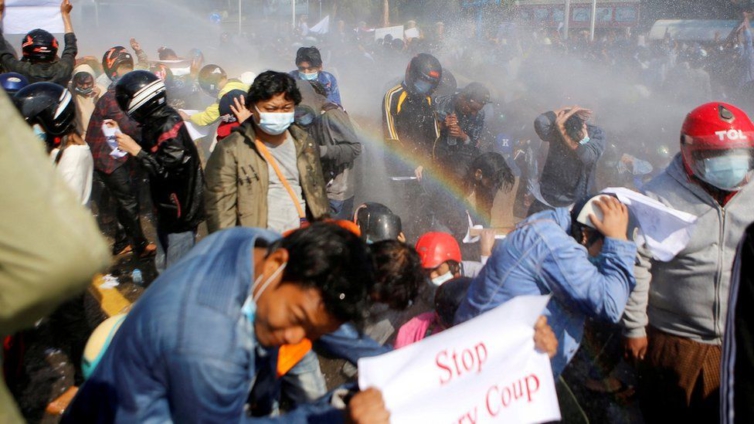
Audio By Carbonatix
Police in Myanmar have fired rubber bullets during a demonstration in the capital Nay Pyi Taw, as thousands defied a ban on protests.
Water cannon and tear gas have also been used against protesters, and one woman is in hospital with a critical head injury.
News agencies quoted doctors as saying they had seen wounds from live bullets.
Protesters are standing against a military coup that removed the elected government last week.
A ban on large public gatherings and night-time curfews has been instigated in some cities, with military leader Min Aung Hlaing warning that no-one is above the law.
The demonstrators are demanding the release of elected leader Aung San Suu Kyi, along with senior leaders of her National League for Democracy Party (NLD). She was arrested when the military seized power and declared a year-long state of emergency on 1 February.
Tuesday was the fourth consecutive day of protests. In the evening, the NLD said its party headquarters in Yangon had been "raided and destroyed" by the military.
In its first acknowledgement of the protests, Myanmar's state TV said police had also been injured while trying to disperse "aggressive" protesters. It said a police truck was destroyed in the city of Mandalay.
Yangon resident Nelly, 18, (not her real name), described the scenes outside her house as "total chaos".
"My biggest fear is our safety, because there are lots of people on the roads protesting but there is also a lot of violence from police officers. We don't know when we'll be shot at or when they will arrest us," she told BBC Outside Source on World Service radio.
How did the situation escalate?
Earlier on Tuesday, police began using water cannon against protesters in Nay Pyi Taw - but the crowd refused to retreat.
"End the military dictatorship," people yelled. Some threw projectiles at police, witnesses said.
Warning shots were eventually fired into the air, before rubber bullets were fired at protesters.
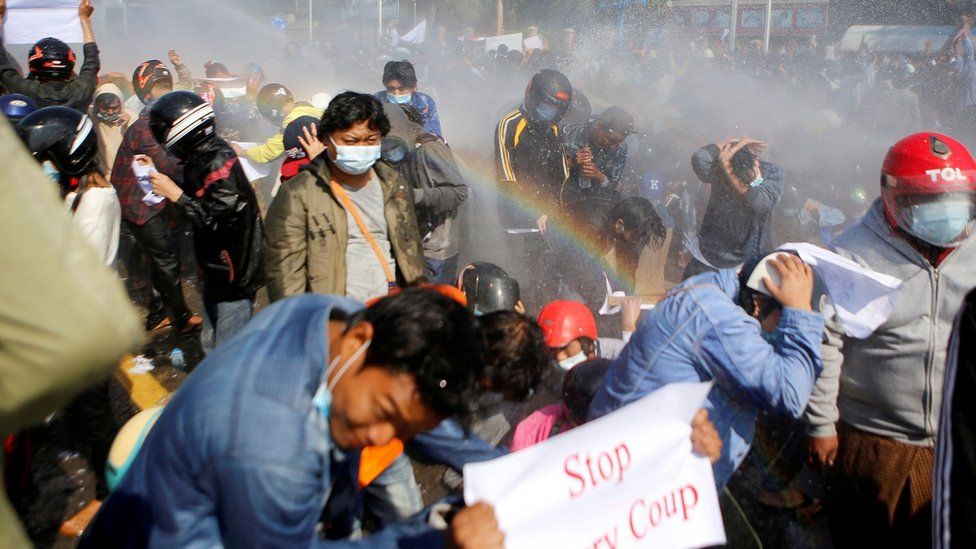
According to BBC Burmese, who spoke to an unnamed medical officer from a Nay Pyi Taw hospital, one woman suffered a serious head injury and another demonstrator had chest injuries. It is not yet clear how exactly they were wounded.
Reuters news agency spoke with a doctor who said X-rays indicated live ammunition had been used against the woman.
AFP also quoted an emergency room doctor who believed the military was using live rounds, citing injuries to a 23-year-old man and a 19-year-old.
"We believe they are actual bullets because of the wounds and their injuries," the doctor said.
On social media, footage and photographs were widely circulated which purported to show the critically injured woman being shot. The footage showed a woman in a motorbike helmet collapsing. Pictures showed what appeared to be a blood-stained helmet. The BBC has not verified this.
The United Nations voiced "strong concern" over Tuesday's bloodshed. "The use of disproportionate force against demonstrators is unacceptable," said Ola Almgren, the UN resident co-ordinator and humanitarian coordinator in Myanmar, also known as Burma.
There have been numerous unconfirmed reports of police officers crossing over to join protesters. In some areas, police also allowed demonstrators through their barricades.
Previous protests against the country's decades-long military rule, in 1988 and 2007, saw demonstrators killed.
'Police are for the people'
Nyein Chan Aye, BBC Burmese, Yangon
The regime's warnings drew bigger crowds in Yangon on Tuesday - estimated at more than 100,000 people.
Demonstrators gathered early and were joined by celebrities.
"Police are for the people" and "Soldiers are not supposed to kill civilians", chanted protesters.
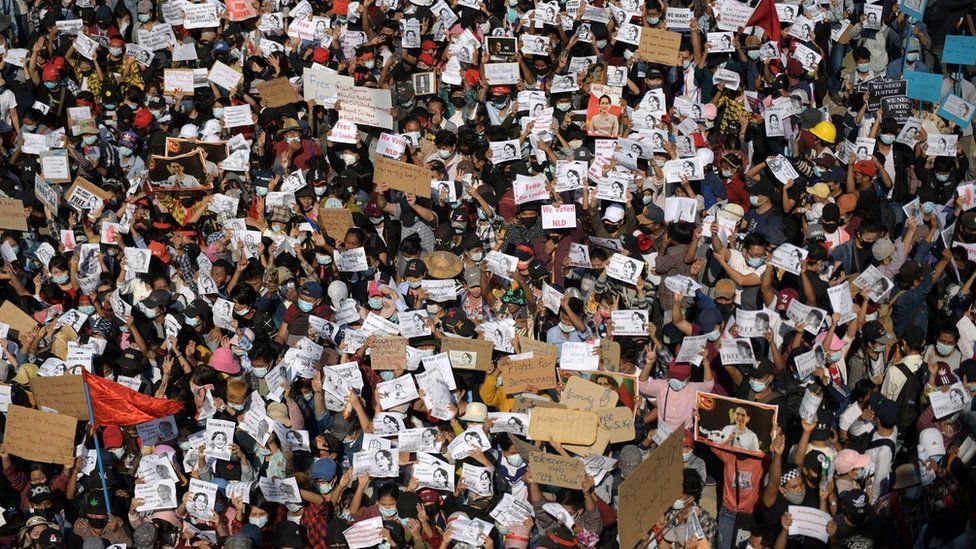
The biggest crowds were near Yangon University and in the city centre, which have become meeting points for demonstrators. Authorities blocked the intersection of Hledan Junction and University Avenue with water cannon, and clashes nearly broke out between students and police.
People in Yangon are angry that security forces used rubber bullets and injured a number of people in Nay Pyi Taw. But protesters peacefully headed home as night curfews began.
The military, on the other hand, appears to have used the curfew to raid NLD HQs in Yangon on Tuesday. Locals who witnessed the raids and a member of the NLD told BBC Burmese that security forces broke down doors by force. No NLD members were present in the building.

What are protesters saying?
"We come here well aware of the ban over gatherings of more than five people," one young male protester in Yangon told BBC Burmese.
"However, we come out because we have to protest until the president and Mother Suu are freed," he added, referring to leader Aung San Suu Kyi, who has not been heard from since being placed under house arrest.
A female protester, who also did not want to be named, said: "Young people have their future, so we can't tolerate this... We will keep on fighting until we get our president and Mother Suu back, whatever it takes."
She said young protesters wanted to avoid confrontations with military.
Even though Ms Suu Kyi's record on human rights has previously been criticised internationally, she remains very popular in the country. Her win in the 2020 election was confirmed by various overseas monitoring bodies.
How is the military reacting?
On Monday, Gen Min Aung Hlaing gave his first televised address since the coup. He insisted the seizure of power was justified due to "voter fraud", accusing the electoral commission of failing to investigate irregularities over voter lists in November's election.
The commission had said there was no evidence to support claims of widespread fraud.
Ms Suu Kyi and various senior leaders from the NLD, including President Win Myint, were detained on 1 February.
Gen Min Aung Hlaing promised new elections overseen by a new "reformed" election commission, and said the military would hand power to the winner.
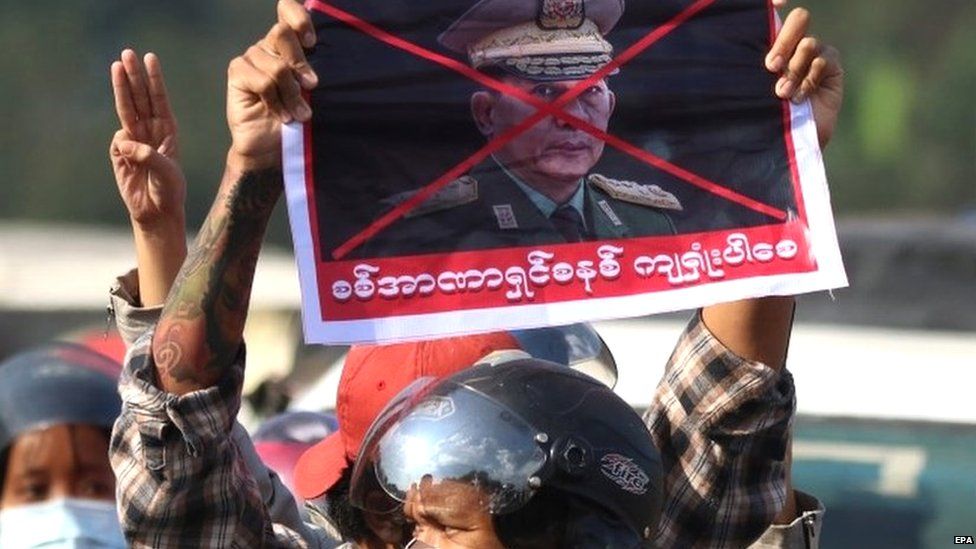
He also said his rule would be "different" from what was effectively a 49-year military grip on power that ended in 2011.
He spoke of achieving a "true and disciplined democracy", a phrase that drew scorn from some opponents of the coup on social media.
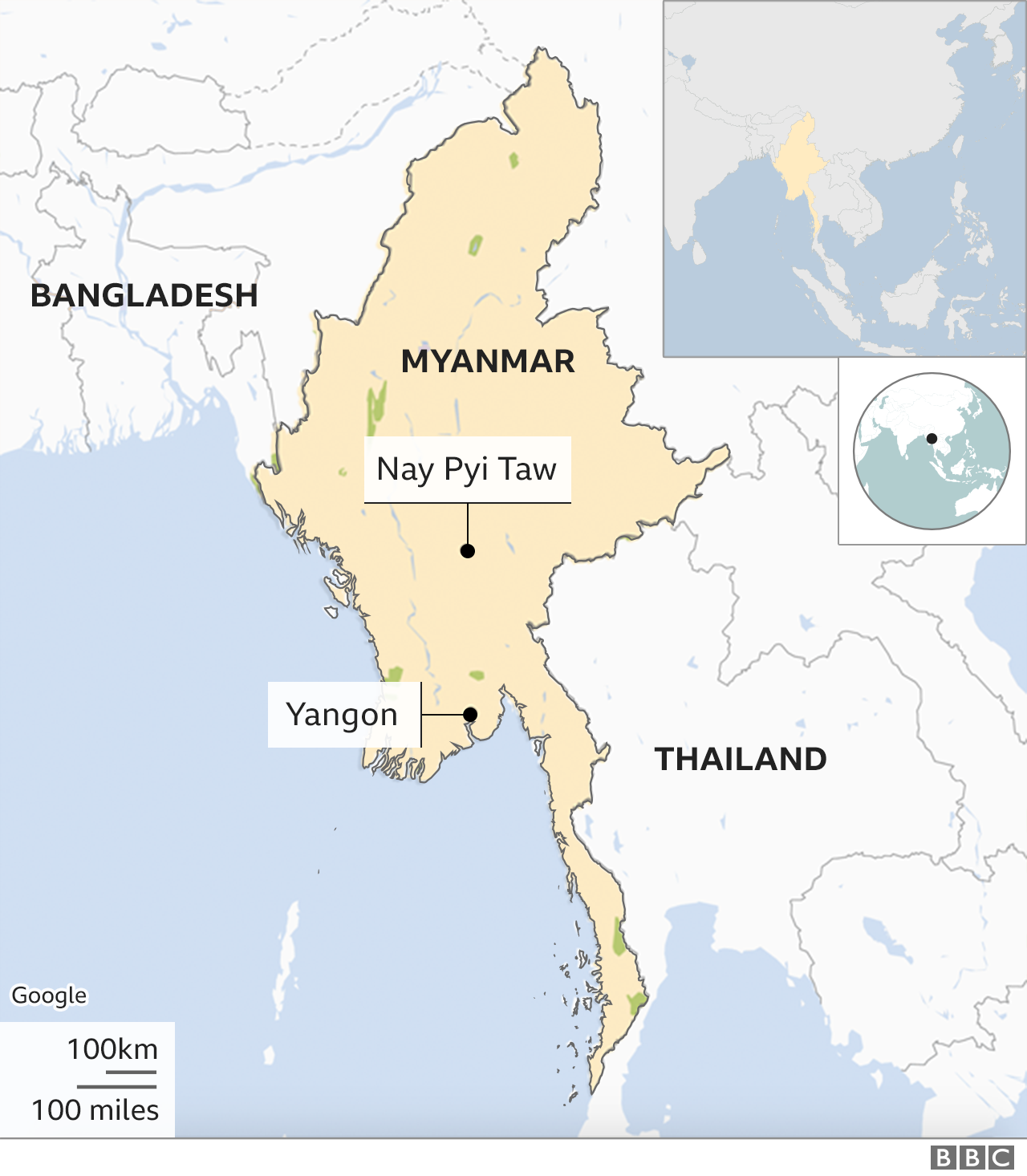
On Tuesday, New Zealand announced that it would be suspending all high-level contact with Myanmar and imposing a travel ban on its military leaders.
It was the first major international move to isolate Myanmar's military since it took power.
The US also called for freedom of expression to be upheld. "We strongly condemn violence against demonstrators," a spokesman for the state department said.
Latest Stories
-
None of NPP’s 5 flagbearer aspirants is credible – Abdulai Alhassan
23 minutes -
Police arrest suspect for unlawful possession and attempted sale of firearm
2 hours -
3 arrested in connection with Tema robberies
2 hours -
Your mouth on weed is nothing to smile about
2 hours -
25% university fees hike, what was the plan all along? — Kristy Sakyi queries
4 hours -
Some OMCs reduce fuel prices; petrol going for GH¢10.86, diesel GH¢11.96
4 hours -
Trump says health is ‘perfect’ amid ageing concerns
4 hours -
China’s BYD set to overtake Tesla as world’s top EV seller
4 hours -
Joy FM’s iconic 90’s Jam returns tonight: Bigger, better, and packed with nostalgia
5 hours -
Uproar as UG fees skyrocket by over 25% for 2025/2026 academic year
6 hours -
Japan PM joins fight for more female toilets in parliament
7 hours -
Ga Mantse declares war on fishing industry child labour
8 hours -
Adom FM’s ‘Strictly Highlife’ lights up La Palm with rhythm and nostalgia in unforgettable experience
9 hours -
OMCs slash fuel prices as cedi gains
10 hours -
Around 40 dead in Swiss ski resort bar fire, police say
10 hours

